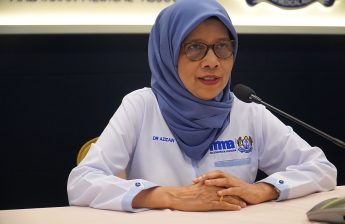Women have long been active members of the scientific community, with a fair few scientists getting international recognition for their work in advancing a particular scientific field.
Women scientists have also been at the forefront in the race to find a vaccine for Covid-19, with scientists like Dr Özlem Türeci, Prof Sarah Gilbert, Prof Katalin Karikó, Dr Kizzmekia Corbett and Dr Nita Patel making good headway in their quest.
While the and other scientists were hard at work to find the vaccine last year, the scientific community was delighted at the announcement of women scientists honoured with the prestigious Nobel Prize in Chemistry and Physics.
Both Dr Emmanuelle Charpentier and Dr Jennifer A. Doudna won the Nobel Prize in Chemistry for their work on Crispr-Cas9, a genetic tool that can be used in cancer treatment, while Dr Andrea Ghez was awarded the Nobel Prize in Physics for her research into supermassive black holes in the galaxy.
Over the last 126 years, since the first establishment of the Nobel Prize in 1895, very few women scientists have been awarded this prestigious prize despite their significant contributions. Drs Charpentier and Doudna are the sixth and seventh women scientists to receive a Nobel Prize in Chemistry respectively, while Dr Ghez is the fourth woman scientist to receive a Nobel Prize in Physics.
Although this achievement marks an important milestone in the push for gender equality in science, and proves that women play an equally important role in science, a lot more must be done to improve female representation in science globally.
When it comes to the question of gender equality in the sciences in Malaysia, we are getting there, but there is still a lot of work to be done. Although statistics from the Ministry of Higher Education in 2015 showed that 48.6 per cent of researchers in Malaysia are female, which seems to be quite a balanced percentage, gender equality is not just about fair distribution.
Generally, women scientists still face many challenges in progressing in their careers due to the work-home balance and motherhood issues. The culture and social norms that expect women to be the major caregiver of the family contribute significantly to the gender differences in the participation and progress of women who have careers in the science arena.
Workplace culture and practices such as organisational hierarchy, promotion criteria, performance assessment and leadership could also lead to systematic disadvantages for women scientists. All of these could demotivate and affect the self-confidence of women scientists, particularly those who are at the onset of their careers.
One of the biggest takeaways from the 2020 pandemic is that the sciences is an important field. We need to ensure that governance and opportunities for women scientists are on the same level as their male counterparts. We need every scientist to be more active in promoting the women in science agenda as support from the entire scientific community is crucial in creating a better environment for women scientists.
We need female role models and strong leaders who could inspire, motivate and affect change in the systems. While there are many globally, we actually don’t need to look very far for women scientists who are role models – Prof Dr Looi Lai Meng, Prof Dr Asma Ismail, Prof Dr Mazlan Othman, Prof Dr Adeeba Kamarulzaman and Dr Cheong Sok Ching are among the many women scientists who are the pride of our nation and who have created personal and national firsts.
Women scientists have proven, despite the challenging environment they operate out of, that they are able to thrive and have proven to the world many times over that women can rock! I hope that the environment becomes more conducive for women scientists in years to come and that a level playing field will allow them to make new advances in their respective areas.
Happy International Day of Women and Girls in Science!
Dr Chai Lay Ching is the chairwoman of the Young Scientist Network, Academy of Sciences Malaysia.
- This is the personal opinion of the writer or publication and does not necessarily represent the views of CodeBlue.




